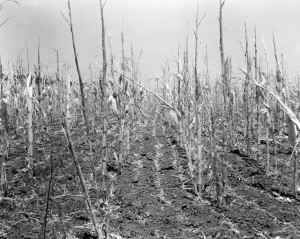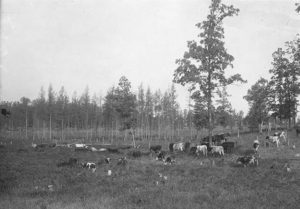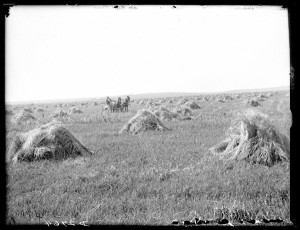The Canton Asylum for Insane Indians did not depend on its gardens and livestock for survival, but the dairy products, fresh meat, and fresh produce they produced made meals more bountiful and nourishing. Dr. Harry Hummer depended upon them to keep his costs down, and failures were disappointing to both his self-esteem and his goal of running a tight (economic) ship. Hummer was a micromanager, though, and his interference probably added to whatever problems the site had due to weather and soil conditions.
Dr. Hummer’s unreasonableness was well-known, and a farmer on staff complained once that the doctor expected him to get a spring garden in (sow seed) while the field for it was under a foot of water. A few years later, the asylum lost its potato and corn crops due to drought and excessive heat, an unpreventable loss that has regrettably always been part of the farmer’s lot. Despite these setbacks, Hummer embraced farming and raising livestock wholeheartedly. Many of his letters to various commissioners of Indian Affairs requested more buildings and equipment to expand these operations, and he was generally praised for his efforts in these areas. Either Hummer concentrated on farming because it was more rewarding than trying to cure his patients, or because he was so concerned about economy that he was willing to neglect his patients to spend time on these non-patient concerns.

Effects of Drought on Corn near Russelville, Arkansas, 1936, by Dorothea Lange, courtesy Library of Congress
______________________________________________________________________________________

